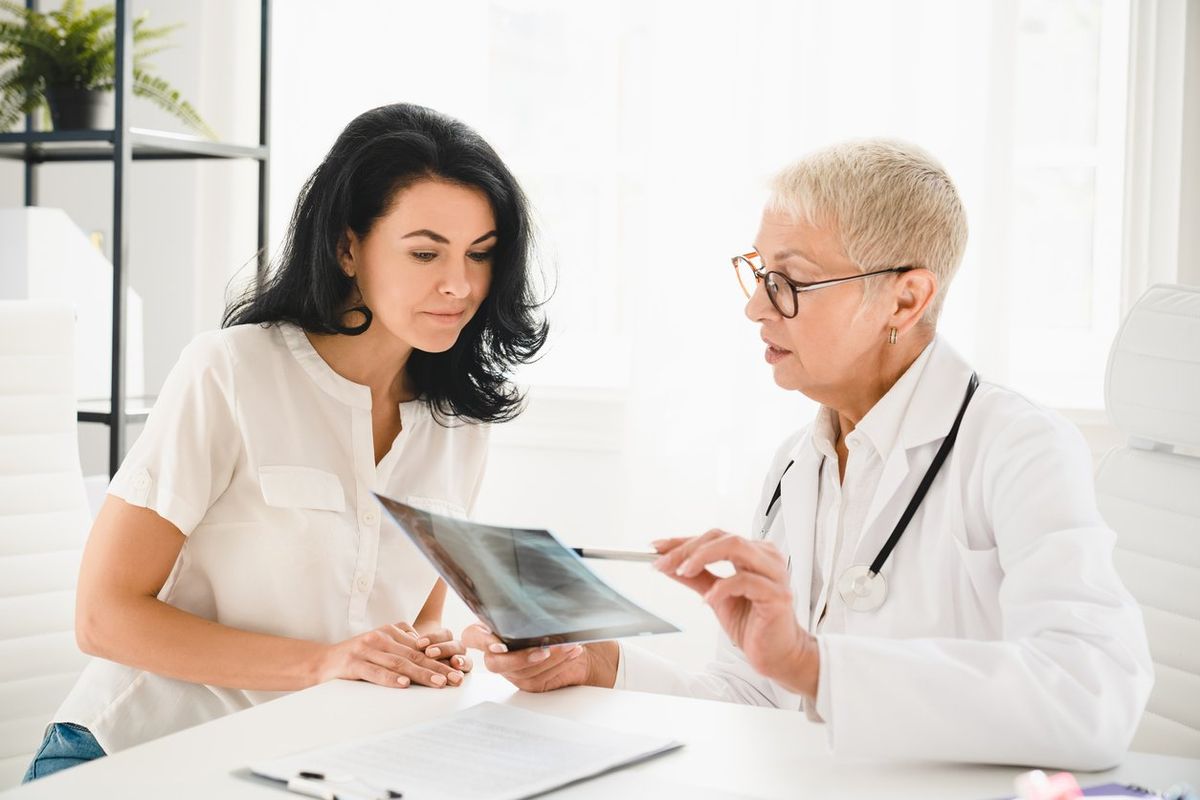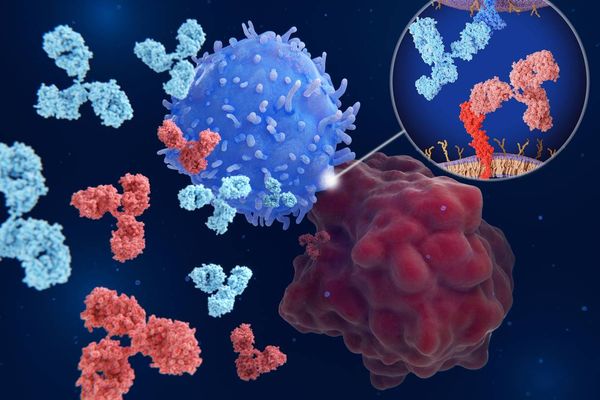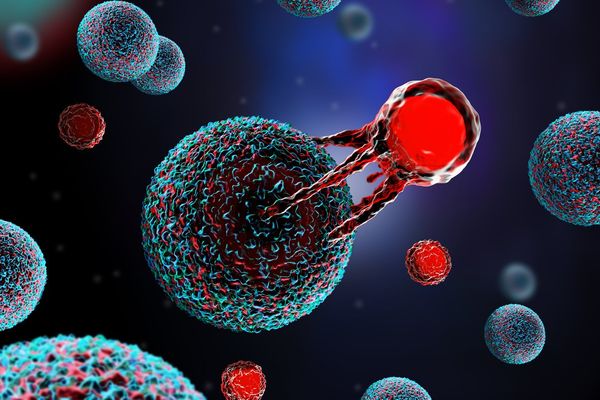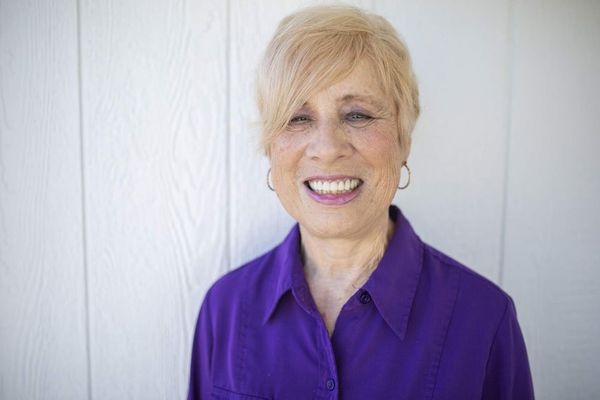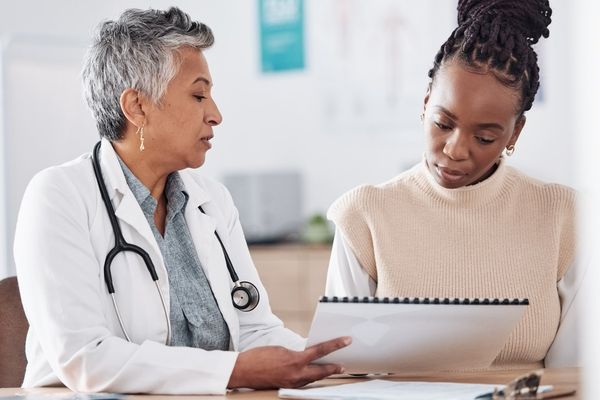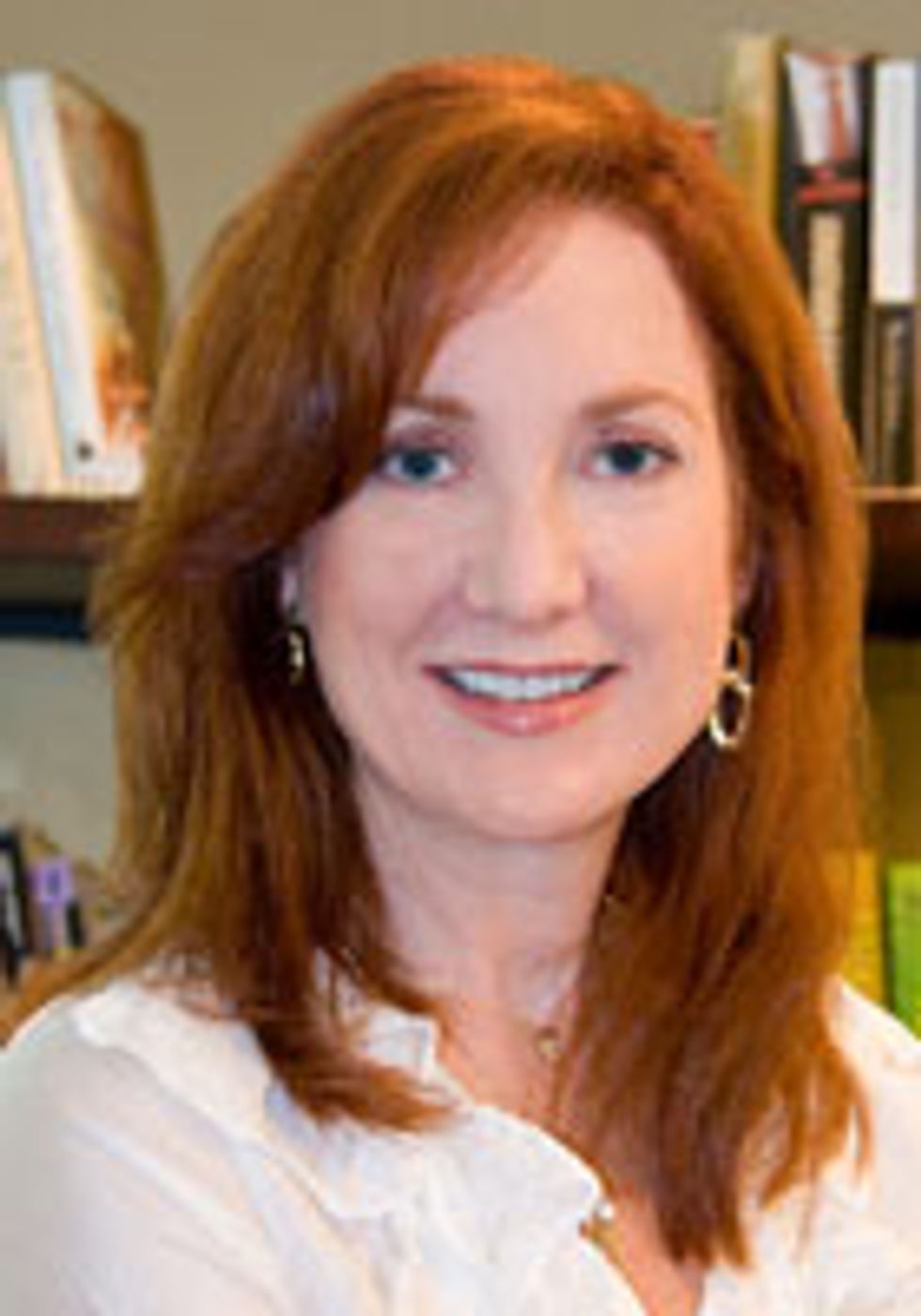
I'm lucky to have a wonderful oncologist. He's warm, compassionate and accessible. He greets me for my now-annual visits with a big hug and kiss. He holds my hand and looks me in the eye when I am talking. Although his waiting room is usually filled with patients, he acts as if I'm the only one there.
But it wasn't always that way.
When I was diagnosed at age 34, the word "oncologist" was not even in my repertoire. But just one day after my mastectomy, an unfamiliar doctor showed up by my bedside and announced that I'd have to come see him "to discuss treatment" about two weeks after my surgery. "Who are you?" I wanted to say. But I was in too much of a fog to fully comprehend what was going on. Ever the compliant patient, I held out my hand to accept the business card with the date of my future visit that he firmly pressed into it before he turned and left.
I don't remember much about the next two weeks; my memories are acutely blurred due to the pain killers and shock. But I do remember asking my surgeon, at my first follow-up visit a week after my surgery, why I needed to see an oncologist. "You'll most likely need some follow-up treatment," he said. And then I remembered what I saw and heard the day that the oncologist had entered my hospital room. He paused in the doorway to speak with my surgeon, and said, in what I remember as being a nasty, sarcastic tone, "If she thinks she's finished, she's wrong…the rest is not going to be a walk in the park."
And certainly my follow-up treatments were not a "walk in the park." Not only was the chemotherapy tough, but even tougher were my extreme feelings of alienation and hurt. I was full of questions, but my oncologist seemed only full of disdain. I wanted information, craved reassurance, yearned for some kind of security. He was not able to offer anything more than a treatment protocol. When my treatments ended, so did my relationship with his practice.
This scenario would most likely never happen today. Hopefully your connection with your doctor will be more like a partnership. Not only are patients more educated on how to communicate with their doctors, but there are a growing number of programs for doctors, as well. They are encouraged to do things like speak slowly, use plain language and, when possible, demonstrate their points using models or even by drawing pictures.
Much has been written about how good communication with your doctor makes a difference—both in the patient's satisfaction and the outcome. It's startling to read the average time a doctor spends with a patient. I've read estimates of anywhere from seven to 11 minutes (that's the average length of a shower!) Yes, it's unfortunate that time is so limited. That's why it's so important to prepare for your visit in advance and know how to make the most of it.
Below, I offer some tips garnered from various sources, including the excellent information offered by Dr. Marisa Weiss, president and founder of www.breastcancer.org, the U.S. Department of Health and Human Services' Office on Women's Health (www.womenshealth.gov).
- Write down questions or issues ahead of time. Don't forget to prioritize these. Many of us tend to save the most important question for last. When the doctor has one foot out the door is not the right time to ask any question, much less your most important one.
- It it's a diagnostic visit, come prepared with a detailed description of your symptoms. Note when the problem began, how it makes you feel, what sets it off or triggers it and what works/doesn't work to make you feel better.
- Bring a list of your medications and dosages. Include both prescription and over-the-counter medications, as well as vitamins, herbs and any other supplements. Make sure you also understand the implications of any medications your doctor prescribes: what to do if you miss a dose; if there are any foods, drugs or activities that you should avoid while taking the medication; if there is a generic brand of the drug you can use; what side effects to expect.
- Ask for support materials. If your doctor is discussing things like treatment options, things can get pretty complicated and confusing. Many times, there are pamphlets you can take home. Ask the doctor about reliable Web sites, too; there's a wealth of information out there. Remember, the more information you have—assuming it's reliable and current—the more able you are to participate in your treatment and understand your condition.
- Don't be afraid to ask questions or ask for clarification. A study from the University of Washington found that doctors rarely (only 1.5 percent of the time) ask patients whether they understand what was discussed during an appointment. So it's important to be your own advocate and make sure you understand everything. This will avoid unnecessary worry and follow-up phone calls to your doctor. It doesn't hurt to say something like, "So, if I understand correctly, you are telling me XXXX" and reiterate what your understanding of the conversation is.
- Check ahead to make sure the doctor has your test results and/or reports from other labs or doctors. This gives you the opportunity to discuss those results in person, rather than over a rushed phone call (if you're lucky enough to even get your doctor on the phone).
- Bring a trusted friend or family member with you. In the beginning, I rarely went to a visit without my husband. Thankfully, he was able to adjust his schedule to accommodate me. The few times he couldn't, my mother or a close friend accompanied me. Another set of ears is always helpful. Many times, as a patient, you may be too consumed with worry or fright to fully comprehend what the doctor is saying. And sometimes another person thinks of questions to ask that would not even occur to you. A tape recorder (with your doctor's OK, of course) can also serve as a backup for you, as will a pad of paper to jot down some notes.
And lastly, there are a couple more things I have experienced that I'd like to include.
- Make sure you find out how to reach your doctor between visits. Some doctors might use e-mail; others have a designated time of day for returning calls. You may even be able to talk to a nurse to get the information you need.
- Keep a folder with copies of your test results (yes, you are entitled to this information). With copies in hand, I could share them with my internist, if need be, or just feel secure knowing that I had a stack of papers that conferred my continued good health.

